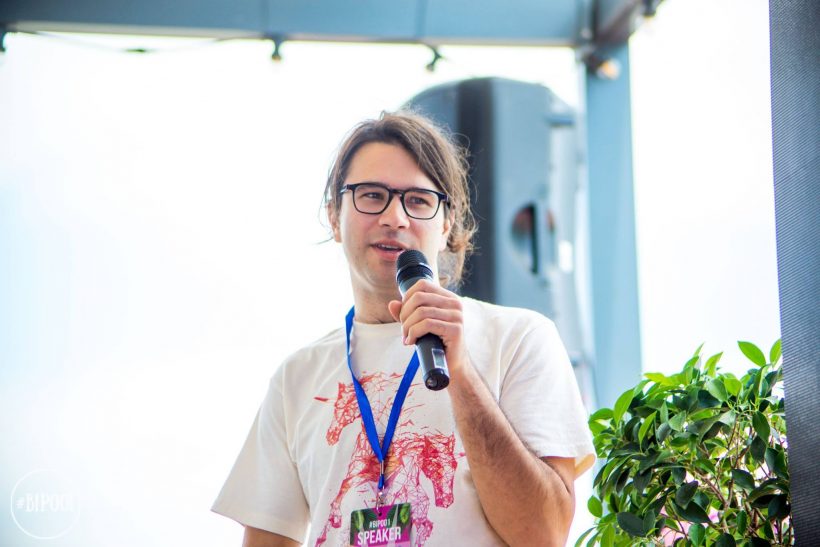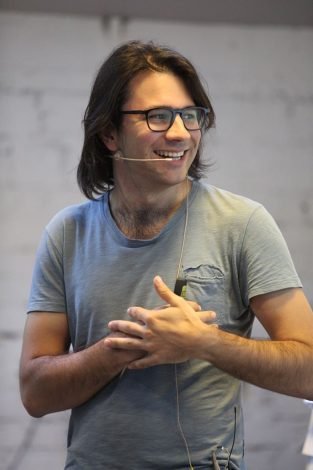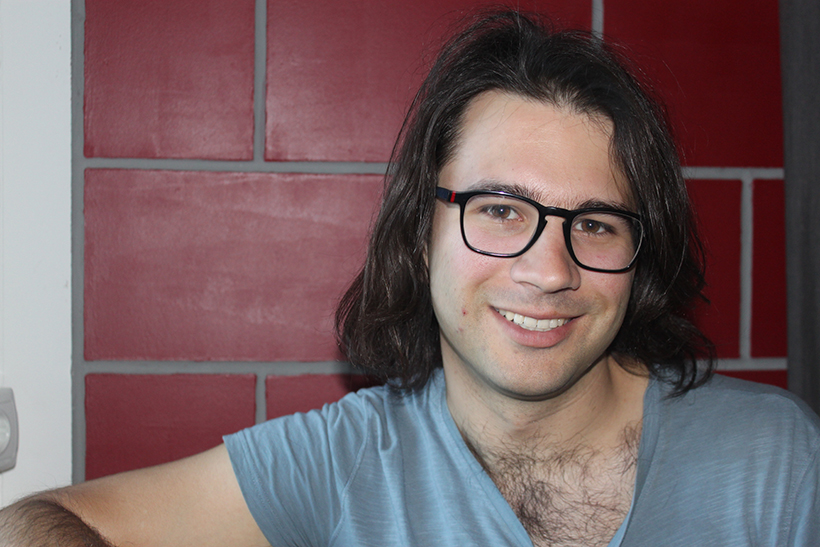Vlad Zamfir, researcher and developer of Ethereum Foundation, recently visited Odessa, where he took part in Blockchain Incredible Party (BIP 001), which is the third time in this city on the Black Sea was carried out by Distributed Lab.

After the conference, Zamfir also spoke at the Ethereum Meetup in Odessa Terminal 42, describing the various aspects of this popular platform. Despite the tight schedule, Vlad took the time to chat with the editors ForkLog and shared his opinion on the current state of affairs in the Ethereum, and also talked about how he sees the future of the system.
ForkLog: Vlad, hello! The community wants to know what is happening today in Ethereum, what can we expect innovation and other breakthrough ideas.
Vlad Zamfir: Studies are constantly, and I think we can expect some innovations in regard to the development and other aspects of our work. I mean consensus protocols, Proof-of-Stake, and sharding. With regard to the protocols of consensus and Proof-of-Stake, in this direction is particularly significant contribution has been made.
FL: Let's discuss in more detail in the Proof-of-Stake.
VZ .: In general, Proof-of-Stake does not take any special place among all our other projects. We focus on issues such as kriptoekonomika, ie the use of incentive mechanisms to ensure the security of distributed systems. We do pay a lot of attention and time, security of our system.

We take as a basis the provision that all nodes run the rational players, they respond to the incentives offered and justify our expectations. Nevertheless, we strive to make the most difficult task to encourage other parties to undermine our protocol guarantees.
For example, the biggest challenge for us is Long-Attack-the Range . The same can be said about the so-called attack-AT-for Nothing the Stake - if the user does not lose anything by taking part in the signing of forks, he has some incentive to vote for a different protocol. For this reason we use as the main mechanism for a security deposit, and do not trust the users free of such deposit.
So I would say that we do a great job in the direction of economic incentives. We need some way to figure out who voted for the report, and who is not. If this vote was, we need to somehow punish the party, and therefore we confiscate his security deposit. If, however, we can not say with certainty who took part in the vote, in any case we have to set the terms involved and take them economic measures.
In this respect, we have quite a tough approach - the mechanism for margin deposits gives us a really high level of economic strength.
Also, referring to the Proof-of-Stake, another key issue on which I focus is to ensure that the lack of information exchange between the cartels. Our goal is to demonstrate that each of our protocol guarantees a certain economic security, and that attempts to undermine their will cost a lot of money. However, all this is applicable to any other distributed system.
FL: In the last few months, it was possible to hear a number of contradictory statements regarding the timeframe to transition Ethereum algorithm Proof-of-Stake. Can you say exactly when this will happen?
VZ .: It will not be any shift in an instant, everything will take place in stages. More specifically, the first stage will be deployed throughout the year. It is virtually guaranteed.
FL: But while Ethereum remains on the algorithm Proof-of-Work?
VZ .: Yes, we go to Proof-of-Stake when we are ready. This means that we must be ready to appropriate adequate implementation and awareness community.

FL: Do Ethereum made a strong rejection of the algorithm Proof-of-Work?
VZ .: Absolutely, and there are many reasons. One of the obvious things - is the finality of transactions and the other - an opportunity to bring to justice the cartels, for example, that it is impossible to do now with the algorithm Proof-of-Work. All this allows us to make the system really stable with respect to the internal arrangements between the owners of a large number of coins - we have the opportunity, as they say, "take them by the balls," watch over them and to ensure their correct behavior within the framework of the protocol.
I have also noticed that the Proof-of-Stake offer more predictable the creation unit and a lower cost of consensus. In general, we can talk about a lot of advantages, which is why we want to translate Ethereum on the Proof-of-Stake.
FL: In recent years, many users complained of excessively high commissions in the implementation of the transaction, especially when it comes to participation in various ICO and kraudseylah.
VZ .: I can not promise, that transaction will be less than the Commission. But here's profit miners definitely reduced.
FL: Not so long ago, we all witnessed how Ethereum network actually "fell" during kraudseyla the Status of the project, not coping with a large number of transactions. Ethereum developers plan to address this issue?
VZ .: We will certainly examine these situations, but it is much more related to the issue of scaling the network. I would even say that the more it concerns sharding, which tops the list of our priorities. For example, we need sharding file server, and an issue that brooks no delay.
Help ForkLog: to solve the problem of scaling smart contracts Ethereum network is supposed to use the so-called "sharding". Sharding provides less than full node, which must store information on the complete status of the network and each transaction that occurs on blokcheyne. Instead, each node stores a subset of this information and confirms the transaction only on the subset.
At the same time I can not be regarded as a threat to use Ethereum Ethereum. Rather, I see it as a major inconvenience for users, who have to wait a long time confirmation transaction or pay more. In any case, security protocol, all these many ICO can not undermine.
FL: It will soon be a year since the first hardforka Ethereum, which, as we all remember, was preceded by the collapse of The DAO. Assessing the situation today, whether it was the right decision?
VZ .: Absolutely. I was convinced of the correctness of hardforka then, and today I am convinced that even more. It was a very big step in many ways. For example, and we have realized a year later, thanks to the idea of separation hardforku Monet is no longer something unknown. Despite all the controversy and division among the parts of the community, we now know that this is possible.
Also today, we can also observe a considerable variety of customers. Some of them were against hardforka and separation of the network, while others want exactly the opposite.
But what is more important and that I was really happy, this is what the hardfork demonstrated that the community is able and willing to take responsibility for what happens. This is really important.
FL: If we talk about the medium-term future Ethereum, how do you see it? What users can expect, for example, by the year 2020?
PR: For me the most important thing - a technical innovation. This is what to focus my attention. But in general, I would like to see Ethereum as a scalable environment for building applications, which would have really enjoyed a lot of people.
Congratulations @hotbitcoinnews! You have completed some achievement on Steemit and have been rewarded with new badge(s) :
Click on any badge to view your own Board of Honor on SteemitBoard.
For more information about SteemitBoard, click here
If you no longer want to receive notifications, reply to this comment with the word
STOPDownvoting a post can decrease pending rewards and make it less visible. Common reasons:
Submit